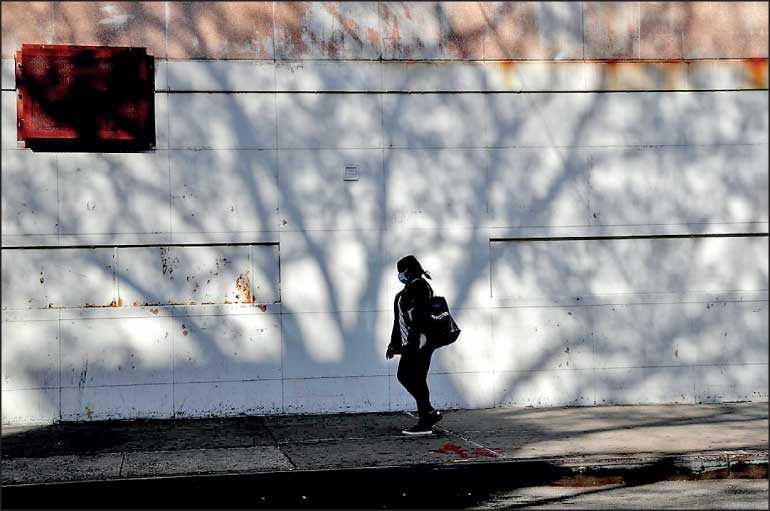Friday Feb 20, 2026
Friday Feb 20, 2026
Monday, 11 May 2020 00:00 - - {{hitsCtrl.values.hits}}

WASHINGTON (Reuters): The coronavirus pandemic triggered the steepest monthly loss of American jobs since the Great Depression, the US Government said on Friday, while Michigan and California prepared to put people back to work to end weeks of a manufacturing shutdown.
The dismal Labor Department report for April underscored the urgency facing the country as it seeks to revive business and social life. At least 40 of the 50 states are taking steps to lift stay-at-home restrictions on all but essential businesses.
Two manufacturing powerhouses, Michigan and California, outlined plans on Thursday to allow their industrial companies to begin reopening over the next few days.
The closely watched monthly report showed the unemployment rate surging to 14.7% last month, the steepest loss since the Great Depression some 90 years ago and shattering the post-World War Two record of 10.8% touched in November 1982.
Several states are relaxing their stay-at-home orders now and governments and businesses have stepped up to support many workers and companies, but it remains to be seen what the new normal will look like,” said Tony Bedikian, head of global markets at Citizens Bank.
Governor Gretchen Whitmer on Thursday gave the go-ahead to Michigan manufacturers to restart today, removing a major obstacle to North American automakers seeking to bring thousands of idled employees back to work this month. The State is home to Detroit, the city known globally as the Motor City.
In California, her fellow Democratic Governor Gavin Newsom unveiled rules permitting manufacturers in his State – ranging from makers of computers, electronics and textiles to aerospace and chemical plants – to reopen as early as Friday.
Under the order, retail businesses can offer curb side service and warehouse and logistics facilities can return to work but companies must ensure physical distancing of staff and coronavirus testing for employees.
Newsom, who on 19 March became the first US Governor to halt most commercial activity in his State, said sufficient progress had been made to allow a gradual reopening.
Concerns about reopening
Retail businesses deemed non-essential remained closed in New York and New Jersey, the country's two hardest-hit states.
Public health experts warned that reopening prematurely risked unleashing new outbreaks. They also have raised concerns a State-by-State hodgepodge of differing policies confuses the public and undermines social distancing meant.
Tom Bossert, Trump's former White House homeland security adviser, said on Friday the national trend of new cases outside New York was of great concern.
“What we're looking for now is red flags for reopening, and unfortunately we're seeing those red flags – about a 2-4% daily increase in the rest of the country when you take New York out of the analysis,” Bossert told ABC News.
That increase, if not contained, could lead to “really devastating results in the next 72 days”, he added.
President Donald Trump initially played down the threat posed by the coronavirus and has given inconsistent messages about how long the economic shutdown would last and the conditions under which states should reopen businesses.
But Trump, who is up for re-election in November, has said he is eager to get the economy moving again.
Interviewed by Fox News on Friday, Trump said that the jobs lost in recent weeks will return. “Those jobs will all be back, and they'll be back very soon,” he said.
Trump also told Fox that certain White House staff members had started wearing face masks, one day after the White House said his personal valet had tested positive for the novel coronavirus.
The White House on Thursday said Trump and Vice President Mike Pence tested negative for the virus and were feeling well after the staffer – a US military service member who works at the White House as a valet – came down with the virus. It said the two leaders would now be tested daily.